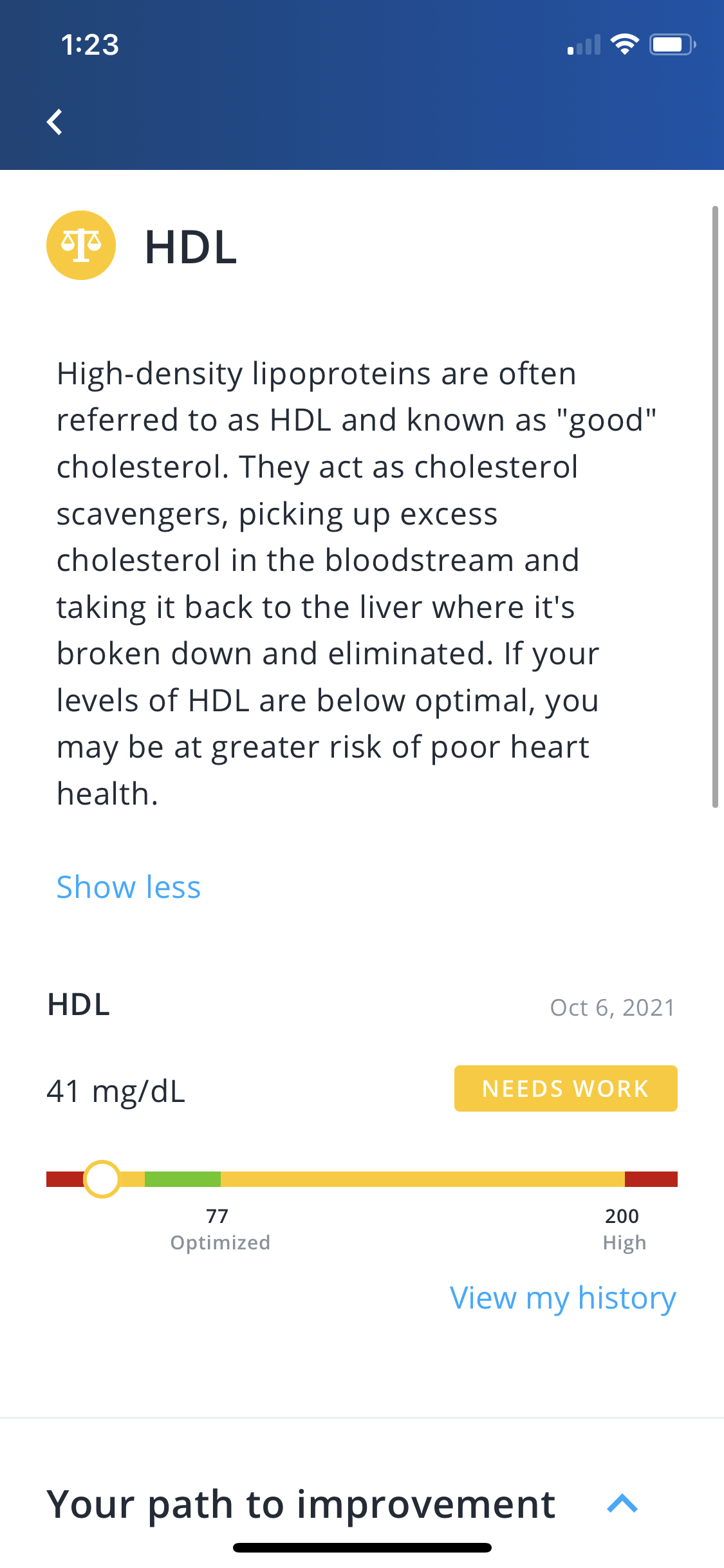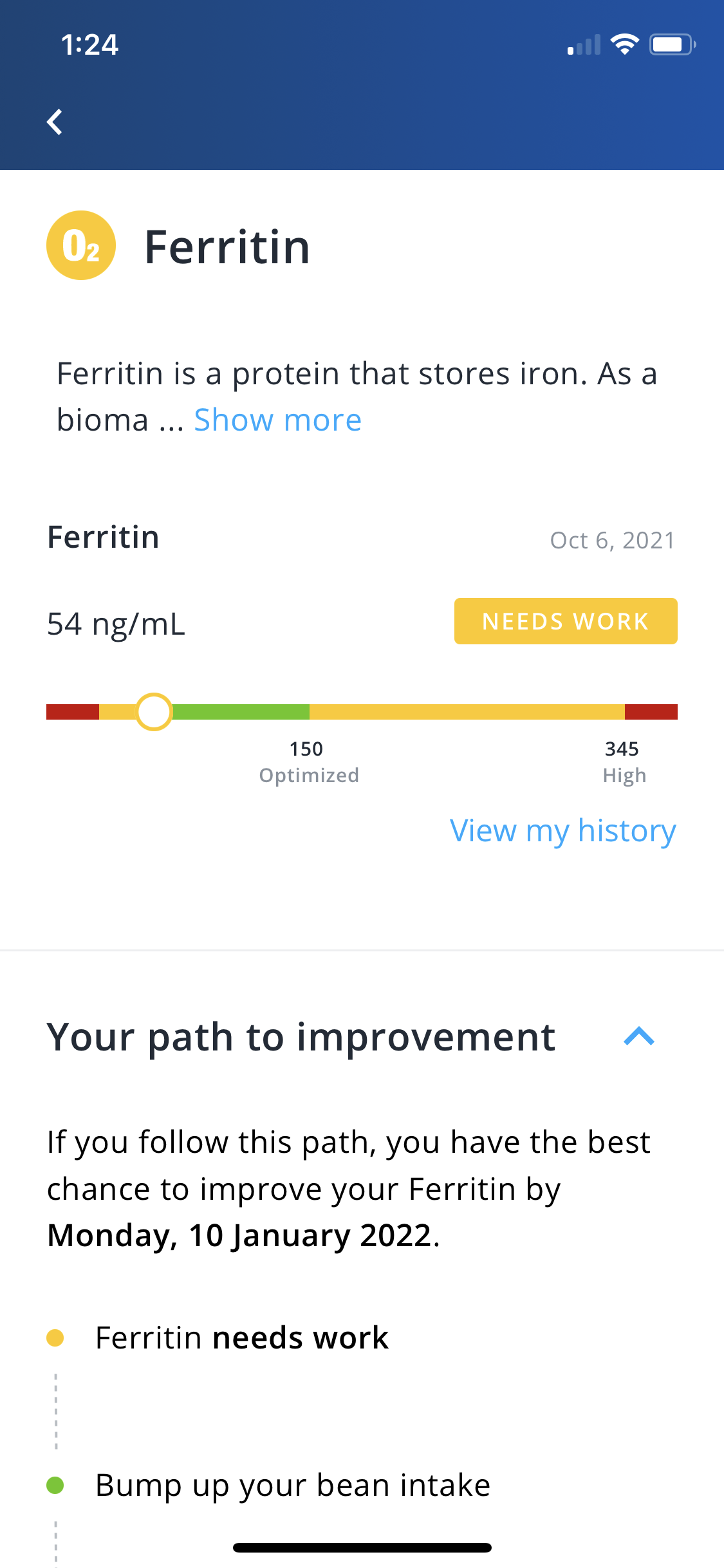Micro (Nutrient) Management - Why I Got A Blood Test and The Shocking Results
There’s an interesting phenomenon with fitness culture where we assume that because someone can swim, bike, or run fast or looks skinny that they are “healthy”. Sure, compared to the average population they might lack certain obvious health issues, but the devil is in the details. Actually, the devil is in our veins.
Getting a comprehensive blood test is probably one of the single most important things an athlete can do for a few reasons.
Performance: If you’re a runner or triathlete and you want to make the most out of your performance, you NEED to get a blood test. We spend hours training and hundreds of dollars on shoes, gear, races, etc. We analyze workout splits, dig into training volume and intensity distributions, and incessantly check the weather to adjust our fueling plan accordingly. But, as we go through this process we might be missing key ingredients and pieces to the puzzle that can take our training to a new level or prevent us from falling into the terrible fate of so many high performing athletes: training really hard only to be moving backwards in fitness and ability.
Health: Fit simply doesn’t mean healthy. There’s a reason for that: as we rev up our caloric expenditure we can mostly keep training and performing at a pretty high level (for a while) without major consequences of bad habits. But after a few months and especially after years of these habits we can end up in a bad spot. I personally am guilty of this because of one simple motto: “I trained XX hours today, I can afford it…”. The it in this situation can be nearly anything but is often - super sugary snacks and sodas, ice cream, greasy pizza, alcohol, etc. We often use these low-quality snacks/foods as a reward for our high-quality work. Now, a little of this isn’t evil. In fact, our Tuesday Night Ride group meets at a brewery and gets beer and pizza after; you still have to live your life and community is a big part of that!
Getting a blood test can simply show you where your habits might be hurting you, with the intention of fixing them slowly over time. Honestly, it’s just like any sort of training - you have to establish a baseline and then make adjustments and see how you’re progressing every so often.
The thing I love about InsideTracker’s app is that it does just that. It shows and explains important biomarkers for health and performance (you can set your Goal in the app to a few different things like Strength or Endurance or General health etc.). Then as you get tested it shows you if you’re in the optimal range, makes suggestions on how you can get to the optimal range, and compares your tests in a simple graph over time.
I’ll give you a few examples from my blood test:
Health wise: for someone who trains a ridiculous amount and is relatively young, my cholesterol isn’t great. Now that I know that though, I can make adjustments and see how that affects it. For instance - I know eating fish is usually a good source of good cholesterol and helps mitigate the damage of bad cholesterol, but I don’t really like fish. So, in order to help keep my heart in a healthy spot for a long-long time, I’ll be adding in things like flax seeds, chia seeds, hemp hearts and other good sources of fats like avocados to all sorts of recipes. I don’t mind fish oil pills if taken at night (if you take them during the day prepare for the fish oil burps!), so that has also become part of the routine. The good thing with focusing on this is that it also could be a performance enhancer
Performance wise: as an endurance athlete, Ferritin is incredibly important. It’s sort of the go-to measure for Iron storage in the body. Low Ferritin = poor performances because Iron is what transports oxygen to your cells/muscles. My level isn’t necessarily “low”, but it’s toward the bottom of the optimized range. Iron is tricky because it can be tough on the gut when it’s concentrated in pill form, so it’s best to try to boost it naturally. However, as I enter a big running training block where I’ll need every little bit of oxygen I can get, I want to make sure this number doesn’t fall below and can adjust by taking an Iron supplement.
There are plenty of other actionable items I picked up from my test (like how to optimize magnesium, testosterone, and liver enzymes to name a few), but as much as my routine might have some helpful hints, it is really understanding YOUR health and performance routines that will help you make the most out of training and life over time. Knowledge and action are power!
None of this is intended to diagnose or treat any specific disease. Consult your doctor when making health changes.


